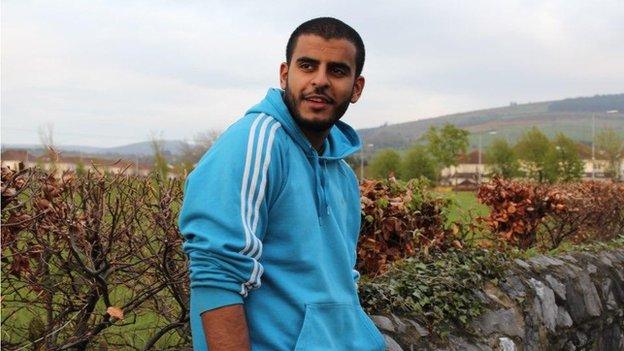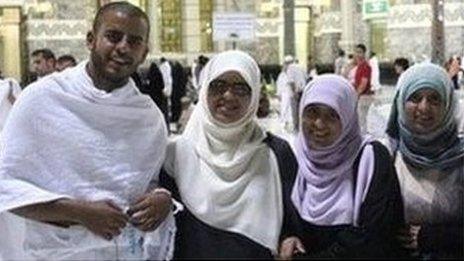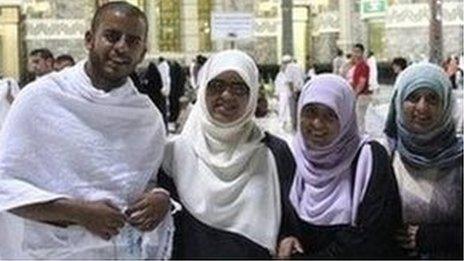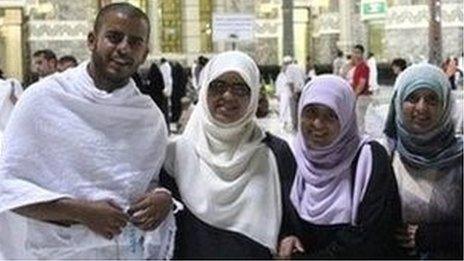Ibrahim Halawa: Irish teenager's mass trial in Egypt adjourned again
- Published

Ibrahim Halawa was arrested by during a crackdown on protests in Cairo in August 2013
The trial of a Dublin teenager held in an Egyptian prison for almost two years has been adjourned for a third time.
Ibrahim Halawa, the son of the most senior Muslim cleric in the Republic of Ireland, was arrested during a siege on the Al-Fath mosque in Cairo in 2013.
The mass trial of Mr Halawa and 493 others began in March after being postponed five times since his arrest.
Mr Halawa, 19, could face the death penalty if he is convicted.
Mr Halawa was on a family holiday to his parents' homeland when he and three of his sisters were arrested by Egyptian security forces during a crackdown on protests in the country's capital.
He was 17 at the time.
His family said he had taken refuge in the building during violent clashes between supporters of ousted president Mohammed Morsi and the security forces.
His sisters were allowed to return to Dublin in November 2013.
Unacceptable
On Wednesday, a hearing in his case took place, with Irish officials in attendance.
But it could not proceed as 16 defendants were not present in court, according to the Irish Department of Foreign Affairs.
Defence lawyers requested that the trial would not proceed during the forthcoming Ramadan period and the judge agreed to adjourn the matter until 2 August, the department added.
Amnesty International Ireland said Mr Halawa should be released immediately with all charges against him dropped.
Colm O'Gorman, the human rights organisation's executive director in Ireland, said the situation was "utterly unacceptable".
"No one should have to withstand the continual raising of hope that they might have their day in court, only to have that hope continually dashed," he said.
"This young man should be at home in Ireland, continuing his studies and getting on with his life."
He added: "I urge the Irish government and their EU partners to continue to work on Ibrahim's case as an absolute priority."
- Published30 March 2015

- Published8 February 2015

- Published5 February 2015

- Published17 August 2014
